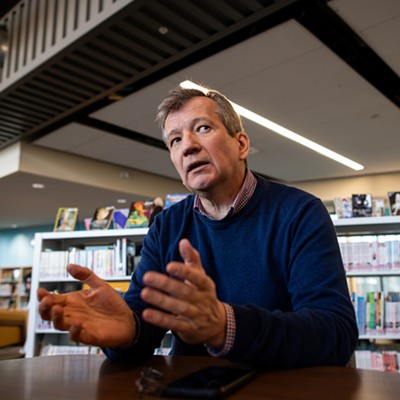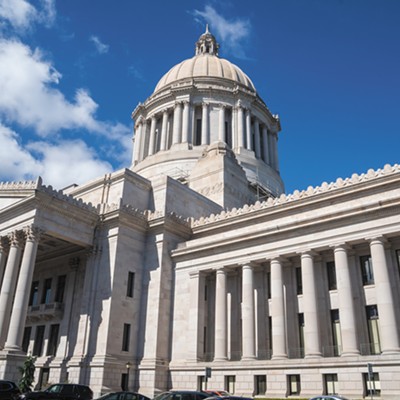“Drop it before someone shoots you!” yelled retired 74-year-old Colonel Bill Badger, moments after he and three other good and brave people had disarmed and knocked down Jared Lee Loughner, the shooter in the Tucson massacre earlier this month. The colonel, who obviously knew how things worked in Arizona, was shouting at a man who had picked up Loughner’s weapon.
About the same time, an armed man in the crowd was spotted. This would-be vigilante came within a microsecond of shooting at a first responder, confusing him for the assassin.
Had a paramedic, police officer or innocent bystander been wounded or killed, you can only imagine the Arizona public’s response: “But, but… he was only trying to help.” My response? Cart him off to jail, convict him of something like reckless endangerment or manslaughter, and then make certain that this neo-felon never owns a gun again.
If you were an armed, off-duty police officer standing in that bloody parking lot, and you had seen that man draw his gun, what would you have done? The same thing that most police officers would have done: shot him to save lives.
In 2010, police deaths in the line of duty were up 37 percent from 2009 — this, at a time when violent crime in America is at its lowest level since 1993. The statistical curves, for no apparent reason, have crossed.
Well, there is one reason: the accessibility of firearms. Notably, the five most deadly states in the United States are all gun-friendly states: Alaska, Louisiana, Arizona, Wyoming, Nevada and Mississippi. The safest states are those that give public safety much higher priority: Hawaii, Massachusetts, Connecticut, New Jersey and New York.
This counterfactual gun mania, which holds our cowardly Congress at bay, was given the green light by Justice Antonin Scalia, America’s “Pharisee in Chief.” Scalia, completely out of touch with context as usual, overturned a century of judicial deference to the political process, which had held that the Second Amendment was a collective right. Relying more on 18th-century English law and newspapers of that day than on James Madison (hey, all Madison did was write the actual amendment), Justice Scalia ruled that the right to bear arms is an individual right, thus unleashing vigilantes across the land. Scalia gave them the constitutional high ground and their party line: “Law-abiding citizens have a right to protect themselves.”
What this situation actually has produced is more police deaths, which will lead the police, understandably, to take fewer chances. They will shoot quicker and their targets will, from time to time, include vigilantes.
Case in point: the tragic shooting last summer of Baptist minister Wayne Scott Creach, out in Spokane Valley.
Rev. Creach, also a nursery owner, often carried around his .45-caliber pistol. He was known to have drawn his gun on suspected trespassers on his property. It was reported that he held one against a wall with the threat, “I’ll blow your head off” (a line that Christ, safe to say, never used).
That night, on request from a neighbor, the police were again patrolling the neighborhood (Mr. Creach had made 21 requests for assistance in the past). Deputy Brian Hirzel was sitting in his unmarked car when Creach, thinking that Hirzel was another thief, grabbed his .45 and headed towards the unmarked car.
As reported, Deputy Hirzel told him to drop his weapon. Creach refused. The officer then hit him with his baton. Creach hit the ground, but he had never dropped his gun, which he put into his waistband. When Hirzel saw “the butt of the gun,” he fired and killed Creach.
Might another officer have responded differently? You would like to think so. Someone more experienced, more self-possessed, better trained, with a greater sense of the situation?
OK, but in this day and age, with all these guns out there, not knowing the drug situation, not knowing the mental state, at night, after seeing this armed man heading your way?
Given what is now an army of gun-toters, the reality is if you draw your gun in public, you might be shot. If you draw on an officer of the law, you take your chances. You roll the dice.
Had Mr. Creach, a self-reliant man from an earlier era, truly just been concerned about his safety, he could have stayed in his house and called 911. But he didn’t do this. He went on the offensive. He rolled the dice. And with police deaths in the line of duty skyrocketing, with police everywhere more nervous than ever? Well, your odds aren’t good.
I’m a law-abiding citizen (who lived for a year in the most dangerous inner-city in America, Washington, D.C.), and I’ll take my chances every time with the police, their flaws notwithstanding. The last thing I want to have to deal with is a “law-abiding citizen” playing at law enforcement.
Frankly, given the response to the Tucson massacre (gun sales going up rather than down), I look even more to the police to protect me. Not to protect me more from the bad guys — the police do a pretty good job already. No, I want more protection from Justice Scalia’s “law-abiding” gun-toters, whether they live in Tucson or Spokane Valley.
To this end, I expect we will see more Deputy Hirzels thrown into these situations. For better or worse.























